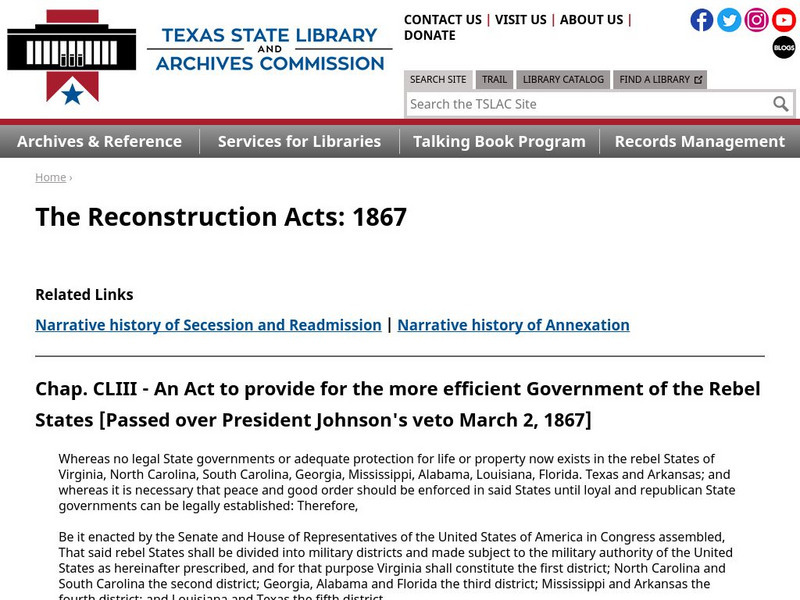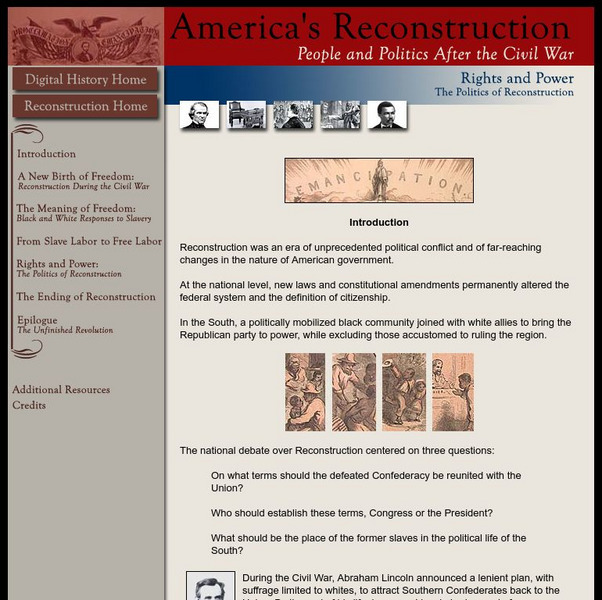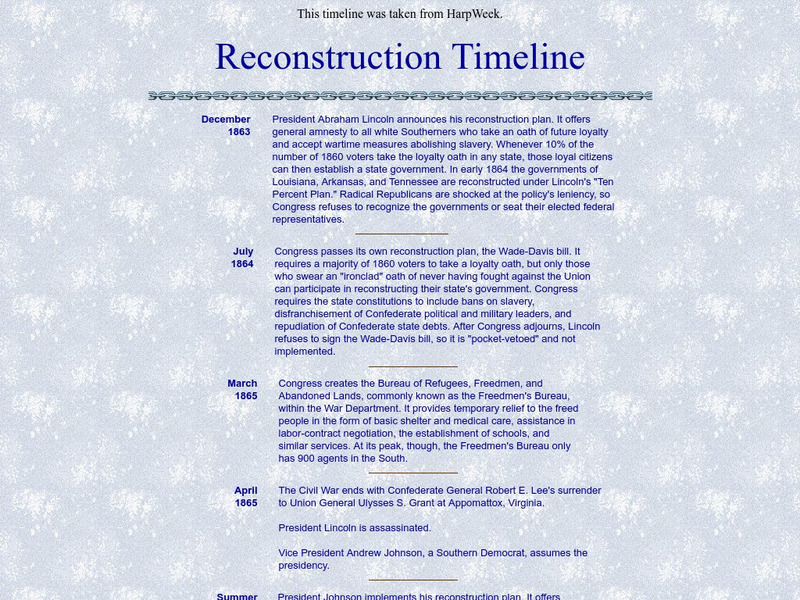Hi, what do you want to do?
Shakespeare Uncovered
All the Globe’s a Stage: Shakespeare’s Theatre
“All the world’s a stage,” exclaims Jaques in As You Like It, but it is the structure of the Globe stage and how that structure influenced Shakespeare’s plays that is the focus of an on-line research project. Class members visit a series...
Curated OER
Writing Exercises: Science and Technology II
All revolutions in science and technology have both pros and cons. Kids examine the advent of the green revolution, nuclear growth, use, and the countries that are considered nuclear powers. They'll construct three responses to each of...
National Endowment for the Humanities
Kennewick Man: Science and Sacred Rights
"Have respect for the dead!" Scholars investigate how science and religion often clash. As they look into the laws of science and the laws of religion, the legal ramifications at the federal level of both play into an argument they...
Code.org
The Need for Programming Languages
LEGO see if you can recreate my design. Individuals build an arrangement from LEGO blocks and write directions for someone else to follow in order to recreate the arrangement. Pairs then swap directions and try to...
Teaching Tolerance
Civil Rights Activity Book
An activity booklet includes a timeline of the movement, a song, and various informational reading passages on leaders, events, and the Civil Rights Memorial in Washington DC. Reading response questions and word puzzles are sure to...
PBS
Using Primary Sources: Nazi Spy Ring Busted
Spy games are not just for professionals anymore! Scholars use short video clips, primary documents, and photographs to investigate Nazi spies in America during World War II. The young detectives analyze the paranoia warfare can...
Science Friday
Fossil Detectives
What can this rock be? Pupils pretend to be paleontologists by sketching fossils and making predictions about their types. To determine whether they can identify the type of dinosaur, class members compare their observations and...
Curated OER
Race and Voting in the Segregated South
Students examine the history of African American voting rights. In this voting rights lesson plan, students listen to a lecture on African American voting rights between the years 1890 and 1965. Students respond to discussion...
Curated OER
The Adarand Case: Affirmative Action and Equal Protection
Eleventh graders examine the Adarand case. In this American Government lesson, 11th graders create a list of reasons for each affirmative action program. Students develop a defense on certain issues and present it to the...
Curated OER
Causes of World War I
Ninth graders identify and explain the six major causes of World War I. They explore the events leading up to WWI, the assassination of Franz Ferdinand and why they were the culmination of everything. Students discuss the...
Curated OER
The Works Progress Administration and the New Deal
Pupils research the Depression Era and how it contributed to the formation of the Works Progress Administration. After research, they create a skit to illustrate life during the Depression and the role of the Works Progress...
Smithsonian Institution
The Proper Gentlemen: George Washington and "The Rules of Civility"
Learners read and interpret a portion of the "Rules of Civility." They describe the significance of these rules in Washington's time. They discuss how the rules might be significant in today's world. They write rules of etiquette that...
Curated OER
African American Life in the Pee Dee Before the Civil War
Third graders examine the life of the African American in the Pee Dee region during slavery. In this slavery instructional activity, 3rd graders explore primary and secondary documents related to the topic and create a timeline of...
Curated OER
Paleoecology Using "Fossilized" Owl Pellets
Learners study the differences in anatomy to help identify different species and use a dichotomous key to identify what the owls were eating. In this investigative lesson students dissect owl pellets to identify the species eaten...
Curated OER
Images, Empathy, and the Humanitarian Impulse
Students study humanitarian intervention and its role in society. In this politics lesson students view a video on Darfur and discuss what they learned.
Curated OER
Werner Heisenberg
In this online interactive history quiz worksheet, students respond to 10 short answer and essay questions about the life and accomplishments of Werner Heisenberg.
Curated OER
The 1932 Election: A Turning Point in History
Students discuss the presidential election in 1932. In this U.S. history lesson, students compare and contrast the differences between the Hoover administration and the administration of FDR. Students work in groups and present the...
Curated OER
Sustained Resistance
Eleventh graders research events that led up to the Civil Rights movement using primary source documents that show attitudes about lynching.
Curated OER
1945 Project
Pupils investigate an aspect of life in 1945 in their country. They write a newspaper account of the topic they research.
Curated OER
Understanding the Importance of the Declaration of Independence
Eighth graders examine the importance of the Declaration of Independence
by using a variety of research sources and computer technology to obtain information. They internalize the thoughts, actions, and motives of the signers of the...
Texas State Library and Archives Commission
Texas State Library and Archives Commission: About Texas: Reconstruction Acts: 1867
The text of the Reconstruction Acts of 1867. Section one establishes military districts in the South.
Digital History
Digital History: America's Reconstruction: Rights and Power
This resource provides information about Reconstruction, the United States Government, slavery, and civil rights.
Other
University of Western Georgia: Reconstruction in the South
An excellent distillation of the many issues addressed in the Reconstruction period in the South in the twelve years after the end of the Civil War.
Mount Holyoke College
Mt. Holyoke: Reconstruction Timeline
Here's a concise timeline that highlights the important facets of reconstruction from the announcement of Abraham Lincoln's reconstruction plans to the end of reconstruction at the election of Rutherford B. Hayes.




























